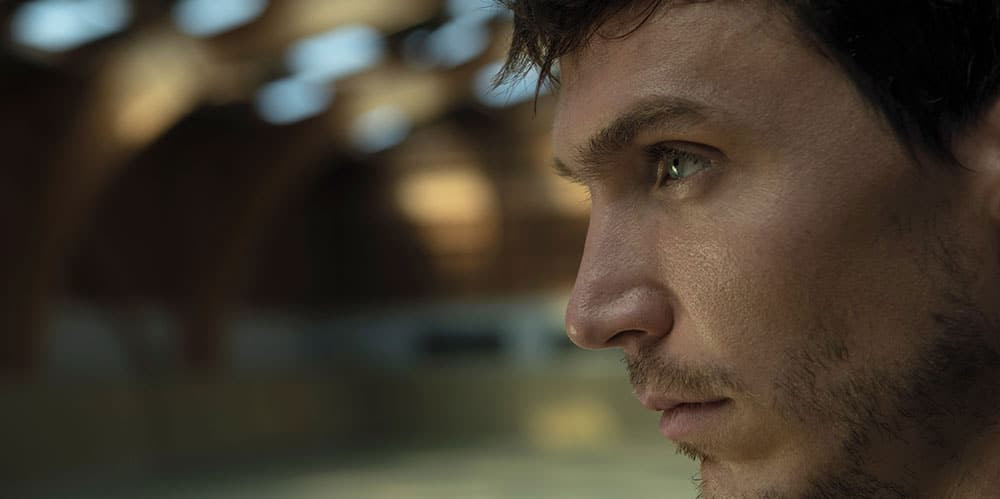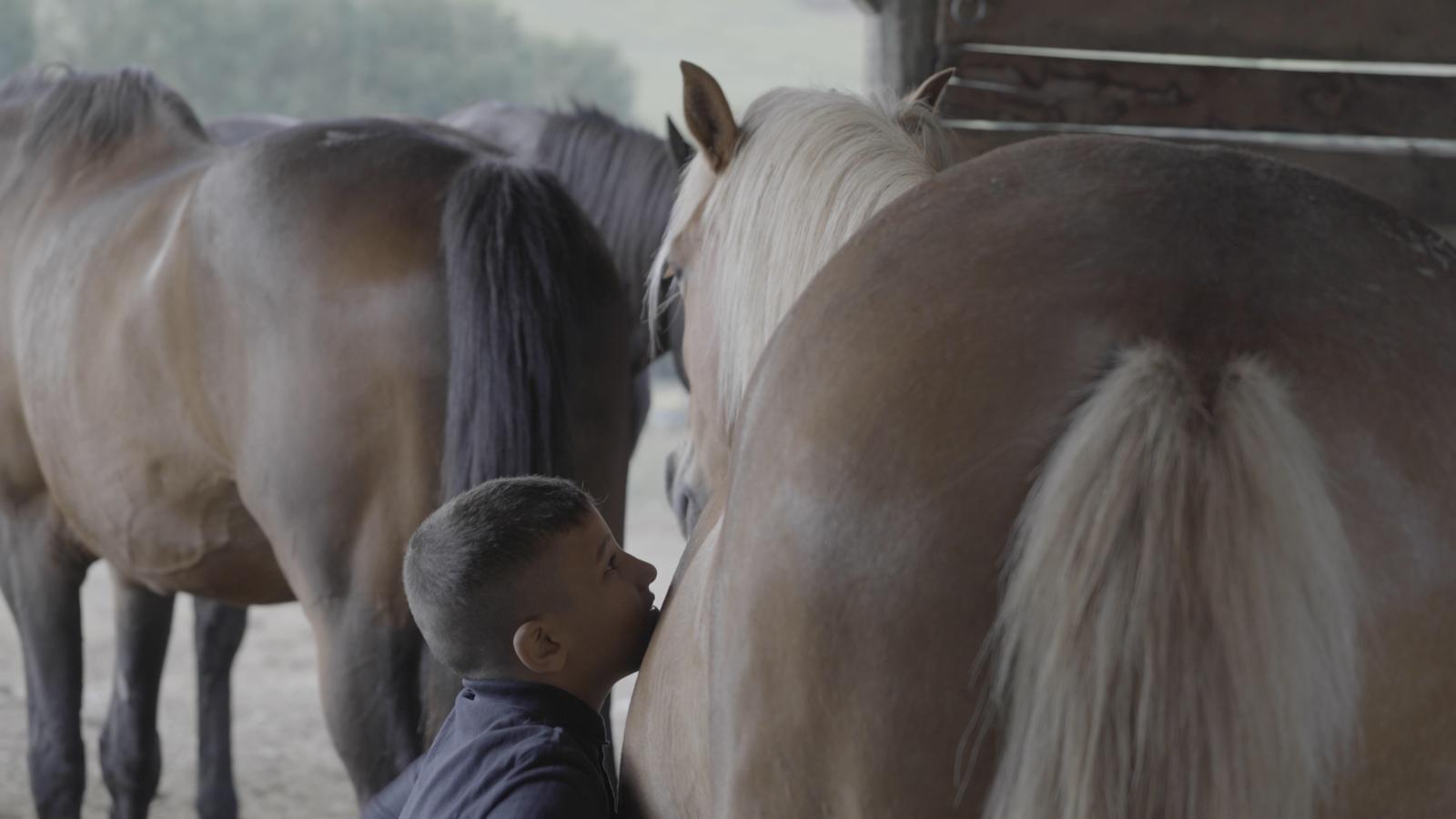
It is a recurring theme on competition fields and in the world of sport in general: mental training is an integral part of sport.
Horse Pilot decided to take a closer interest in it by asking Simon Casse (high-performance athlete, member of the French modern pentathlon Team) and Jean-Pascal Cabrera (sophrologist and mental trainer for the Fédération Française d’Equitation, French Riding Federation).
MENTAL TRAINING: MOTIVATIONS AND STAKES
HORSE PILOT: WHETHER IN COACHING OR IN SPORT ITSELF, HOW CAN YOU EXPLAIN THE IMPORTANCE OF MENTAL TRAINING?
Jean-Pascal: It’s not the same in sport itself but regarding the athlete’s attitude, it works the same. The specific aspect of riding is that the partner is an animal, with its temperament and nature. It has its own emotions like a human being.
A pair is then forming between the horse and the horse rider, it is a team sport. This original aspect is very exciting, because it makes the rider work on his or her feelings even more. The mirror effect towards the others, whether in a football or handball team, makes it possible to communicate, to agree on codes that work or not.
With the horse, it’s overall very different. This richness led me to go into this in depth.
Simon: As far as I’m concerned, I started mental training and realized how necessary it was two and a half years ago. In fact, I gradually noted that I was remaining at the same level as the others physically speaking, that I was involved but that I had to work on what was happening in my head. When I had to be focused the most, I couldn’t focus on the right things, so I brought in a mental trainer.
It is another training, like a sixth sport that is added to the five others in modern pentathlon.
HORSE PILOT: SIMON, WHAT IS THE ADDED VALUE OF MENTAL TRAINING IN SPORT PRACTICE?
Simon: Concentration, confidence, especially at key moments, like when you enter the track: you’re alone with your horse and that’s when you have to be very focused on sensations, on what to do, etc. It taught me, precisely, to always approach the courses in the same way and therefore to find common sense. Then it is much easier to analyze your mistakes, what you did wrong, what worked and what didn’t.
That’s how you progress.
Mental training enables you to step back a little more, to be a little more precise on what you see, to highlight the mistakes and to correct them on the following courses. It has made my performance and my commitment in everyday life more mature.
Well, it helps to build a better relationship with the horses and it makes you more comfortable in all situations. Especially regarding pentathlon: you don’t know the horse, you must adapt to any.
You have to be ready for anything to happen.
COMPETITION IS ALL ABOUT LIVING IN THE PRESENT
“BEING ABLE TO RECOGNIZE KEY MOMENTS, OR THE RIGHT MOMENT WHEN YOU HAVE TO GO BACK INTO THE PRESENT, INTO ACTION”
HORSE PILOT: JEAN-PASCAL, WHAT DIFFERENCES CAN BE NOTICED WHEN ATHLETES FOLLOW A MENTAL TRAINING PROGRAM?
Jean-Pascal: The difference between a high-performance athlete and an athlete of lesser performance is defined by the way they concentrate. This concentration is either about physical things, specific (like the pelvis position) or global (like the state of tonicity), or about external things, specific (where is the horse going, what visual cue will I take) or global (the course).
When you are stressed, you do everything wrong or you mix things up. For example, in horseback riding, the first thing you have to do is to take care of your horse, it has to be fine. I would go relevant concentration points by relevant concentration points. And the closer I get to the square, the more my concentration would focus on more and more precise points. I would look at the tip of my horse’s ears 1 meter before the bar and then beyond the bar when I would have crossed it.
Quality of concentration is all about right here and right now. I’m not thinking about the medal. If I’m ever thinking about the medal over the obstacle, it’s over. The purpose of concentration is to provide specific, strategic information. Obviously, an athlete is always there to win but in the concrete vision of performance, only an extreme concentration makes him or her engrossed in what he or she is doing.
HORSE PILOT: SIMON, HOW DOES MENTAL TRAINING PRECISELY ENABLES YOU TO MANAGE PRESSURE BETTER AND to STAY FOCUSED?
Simon: Mental training helped me to set up a, let’s say, little sequence to recognize key moments or the right moment when you have to go back into the present, into “action”. In horseback riding, to me, it’s the moment when the bell rings. That’s when you forget everything that’s going on around you, when you’re alone with the horse and the course.
Obstacle n°1: how to approach it, which curve, which impulse to give? Stay focused on what you have to do then.
Afterwards, I visualize quite a lot to check if I have well assimilated the perfect moment to do such an action, the perfect way to approach such an obstacle. Now, you can’t predict everything, so it’s always difficult to visualize, especially with a horse you don’t know. But once you ride the horse, it’s really all about concentration, about the present moment and about what has to be done in the moment.

CONCENTRATION, THE KEY TO PERFORMANCE
HORSE PILOT: IN THE CASE OF AN IMPORTANT COMPETITION, REGARDLESS OF PHYSICAL TRAINING, TO WHAT EXTENT DOES MENTAL TRAINING HAVE CONSEQUENCES ON RESULTS?
Simon: Competition is all about being the best at the right time, at the right moment, when everything is happening. This is when you have to make the most of your physical abilities. Mental training helps a lot to get to that moment, to live those moments.
Many athletes talk about an area, a kind of area of concentration and of self-confidence, in which nothing can happen. Whatever happens, you have a solution, you anticipate everything. What is important is to think of everything ahead. To get into this area, you have to work mentally because in reality, it doesn’t happen like that every day.
You have to know how to take advantage of this, how to manage your mistakes and failures and how to always forge ahead in a positive way.
Jean-Pascal: The psychological factors of performance are at the heart of performance to make it as optimal as possible. The goal is to be the best and to reach this goal, I must be as neutral as possible in my judgment (what should I correct, what should I do more, or less: it not about what is it worth).
This is why it is necessary to practice not to pass value judgments, but rather to build a phenomenological perspective (phenomena observation).
In horseback riding, you train with a specific horse, a specific trainer in a specific place, whereas it is very different regarding the mind…
SINCE YOU WERE BORN, YOU HAVE BEEN WORKING WITH YOUR BRAIN AND YOU HAVE THE FEELING THAT YOU USE IT TO THE BEST OF ITS ABILITY. WHEN YOU COMPETE, YOU HAVE TO TRAIN YOUR BRAIN FOR COMPETITION, AND IT WOULD DO EXTRAORDINARY THINGS, IT WOULD SURPASS ITSELF.
The notion of physical limits or concentration limits is only a subjective one. You set yourself psychological limits. You can push back your limits by practicing, precisely, to move beyond these mental signals.
The higher the level, the more difficult it becomes to push back the limits. These “small gains” require enormous efforts in terms of upstream work. All these details are incredibly difficult to improve, but that’s what will make all the difference.
“A DETAIL IS NOT ONLY A DETAIL.
THAT’S WHAT CREATES VALUE”

A SEMINALWORK, A DAILY TRAINING
Jean Pascal: The interest of sophrology is that you can train without the external context. You practice bringing images into the head, according to established procedures. When you visualize, you need to be in a certain state, a particular state that triggers certain brain waves. This would enable your tone muscles to become much more dynamic or, on the contrary, much more soothed.
Sophrology, by juggling states of tension and visualization, plays on emotions recognition. When they appear, you perceive them faster than other people because you know how to develop your own phenomenology. Well trained, you are able to manage your emotions appropriately, which influences concentration in competition.
The athlete would have representations and images coming into mind, behaviors that would mark his or her presence in a competition. If the training path is not traced, the approach to the competition is not marked. There is a good chance of being disturbed and giving way to improvisation. This does not mean that you have to be rigid. You learn to be flexible and to adapt.
In the mental training process, you need to prepare for the unexpected by having flexibility, while keeping this framework. This is called automatisms.
Mental training is a pyramid that is set up. You start by building the base very wide, then the more the pyramid is built, the narrower it gets to an extremely precise point at the top which could be for example the Equestrian Games.
Mental training is not about working on an object but on the human being itself and its behavior, and it is built stage by stage without waiting until the last minute.
LEARNING TO MANAGE YOUR EMOTIONS, STAYING FOCUSED, ACTING RIGHT HERE AND RIGHT NOW… IT’S NOT THAT EASY.
As for technique, mental training is a seminal work. Competition is only the outcome. So, ready to perform? All you have to do now is to equip yourself!


